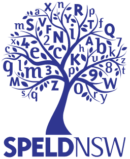Kickstart your year in Kindy Literacy
As the start of year tears and jitters (for teachers and students) subside, we are ready to launch into learning! How can we ensure that we have a strong start to literacy in the early years? Here are our top tips!
1. Run with routines!
Teaching students how to follow routines is essential to a successful learning environment. And for young students learning routines can be hard! At SPELD NSW we say that when something is hard to learn, start early, scaffold and practice, practice, practice. So, start teaching the routines and processes your students will use as part of your phonics instruction now! Time spent getting students used to handing out and using those mini-whiteboards will pay off later! The lesson might last 2 minutes before the class needs a movement break- that’s great – every 2 minutes counts!
2. Phonics- Don’t wait!
Phonemic awareness is not a pre-cursor to learning phonics. The evidence is clear that phonemic awareness and phonics have a reciprocal relationship and the BEST outcomes come from teaching phonics explicitly and using letters as the scaffold for developing phonemic awareness. Do not wait until students have developed phonemic awareness before starting phonics instruction – that phonics instruction and practice will speed up the development of their phonemic awareness! Read more on this topic here: PA Debate | Teaching By Science
3. Get handy with handwriting!
If anything is a challenge, it’s handwriting! So, ensure you start explicit instruction in handwriting early and provide consistent (daily) very short but frequent bursts of practice. Whiteboards are fine for general letter formation but pencil, paper and lines is best. Using lines from the get-go helps students understand letter position and proportions. Start with larger line gaps and gradually reduce them as handwriting develops. Provide scaffolding such as sky, grass, dirt, in the early stages but remove the scaffolds as quickly as possible but as slowly as necessary.
4. Don’t dash for your decodables!
Decodable readers are a fantastic tool we use to support early reading instruction. But knowing where they come into the picture is key and that’s not day 1 of reading instruction. Phonics first! Teach students a small group of GPCs and teach them how to decode and blend so they can start to read words. Before they touch a decodable that corresponds to that code, you should spend lots of time (daily) playing word reading games, reading lists of decodable words, and writing those words. Then students can launch into decodables with success. These books are practice tools that help students move to automatic word reading and fluency.
5. Struggling students?
Learning to read and spell is a challenge – there is no way around that! But actually, there is… practice! Do you find that you have taught some great lessons, but students still stare at you blankly when you show them the grapheme ‘s’ or sight word ‘the’? Then the answer is often – more practice!
Keep those grapheme cards and word lists handy so you can give students lots of recall practice throughout the day. Before the bell, after the bell and between lessons provide lots of exposure and opportunities to practice throughout the day. Have fun with it and remember learning happens over time not at the point of initial instruction. Practice is a teacher’s best-kept secret for learning!
Our final tip… learn to love the sound of young students decoding words. It can be challenging to show patience when it is the sixth time they have sounded out the same word and you want to say ‘just read the word!’… but your zen-like patience, coupled with their decoding- determination will lead to great things as the year goes on!




